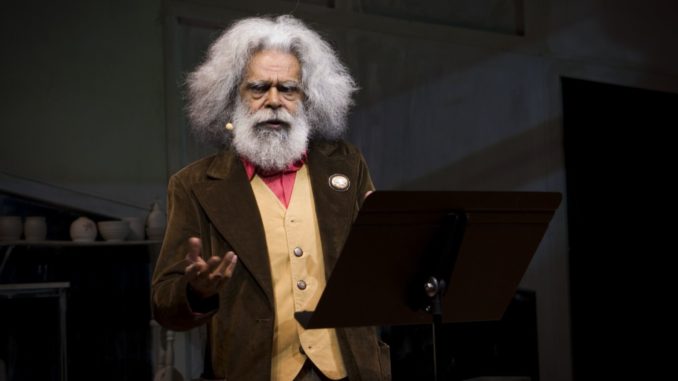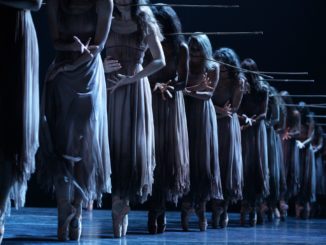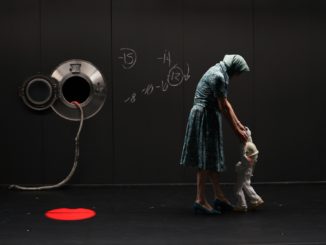
[Stories from Uncle Jack]
He smiled at me. It was a sunny afternoon in Aotea Square when I recognised the Einsteinian hair and small frame of Jack Charles. I approached him as he puffed away on his cigarette; “Jack Charles, right?”, “That’s right, brother”, he replied, extending his hand to mine. We chatted briefly, I wished him well for his Auckland season, and left him to enjoy the rest of the afternoon sun. But it was his smile; the way he welcomed and shook the hand of a complete stranger, the reason he was given the moniker Uncle Jack, that made the lasting impression.
Two days later Jack Charles V The Crown opened at Q Theatre, presented by Ilbijerri Theatre Company, Australia’s leading and longest running Aboriginal and Torres Strait Islander theatre company. The company had attempted to bring the show to New Zealand in 2010, but it would be another eight years before Charles’ graced the Rangatira stage, but not before acknowledging, in a preshow announcement, the indigenous name of the land on which the theatre was built.
The show takes the audience on a thorough investigation of Charles’ life: the removal from his mother at the age of two, an adolescence in state “care”, a brief foster family experience, his search for his Aboriginal roots, his pottery training in prison. The practical facts paint the underlying emotional journey that lead Charles to not only become an actor, but turn to periods of crime in order to fuel his heroin addiction. The titular case, which was initiated as a consequence of the success of the documentary Bastardy, provides the third act structure of the piece (although a more theatrical structure would have it interspersed throughout the story), reflecting the argument for the evidence of mens rea in Charles’ crimes, caused by his turbulent life as a product of the Stolen Generation.
Charles is a true story-teller. His croaky voice and cultured accent is laden with a history and wisdom that only comes from a life of extreme experiences. Since his first screen appearance in the 70s, Charles demonstrated a style of acting that was free from the stiffness of his classically trained white contemporaries. He says he learnt to act at the Box Hill Salvation Army Boys Home, a school of hard knocks, but I would counter it was from an inherent understanding and empathy of people, contrary to the circumstances in which he grew up. What is unexpected, however, is that there is no hint of anger, resentment, or bitterness in Charles’ words. Even when his psychological profile is both read out and projected upstage, the link between the labels and the man are seemingly implausible, if not heart-breaking.
Other projections by audio visual designer Peter Worland, and set and costumes by Emily Barrie, provide a simple yet nostalgic evocation of the past tense narrative that support Charles’ and John Romeril’s text. Likewise, Rachael Maza’s direction and Romeril’s dramaturgy work seamlessly, allowing Charles’ charm to envelop the audience into a sense of ease and engagement. Such acute detail can be easily overlooked, but it must be acknowledged as an awareness of working towards the point of the show. Charles is a self-proclaimed black light of the future, but it is only through hearing his story, and understanding both his and Australia’s past, that such a future can be made.
Jack Charles V The Crown is presented by Ilbijerri Theatre Company and plays at Q Theatre until March 18 as part of the Auckland Arts Festival.




Leave a Reply